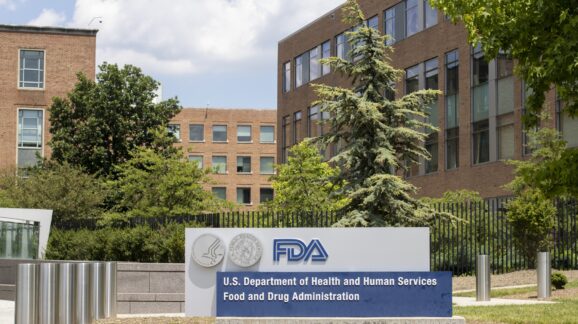FDA makes lab test power play

Photo Credit: Getty
The Food and Drug Administration has just released its long anticipated final rule that explicitly asserts its claim of authority to regulate laboratory-developed-tests (LDTs)—tests that are designed, manufactured, and used with a single laboratory that is certified to perform high-complexity testing—as medical devices. The timing is designed to preclude Congress—which has repeatedly declined to enact statutes giving FDA explicit authority to regulate LDTs—from reviewing the regulation under the Congressional Review Act when a new Congress is seated after the 2024 election.
FDA has long maintained that the Food, Drug, and Cosmetic Act (FDCA) allows it to regulate LDTs. But it has rarely done so. Instead, the agency, citing “enforcement discretion,” has generally not required labs certified under the Clinical Laboratory Improvement Amendments of 1988 (CLIA) offering LDTs to comply with FDA regulations that require medical devices to undergo premarket review.
The final regulation states that, “FDA is phasing out its general enforcement discretion approach for LDTs so that IVDs [in vitro diagnostic products] manufactured by a laboratory will generally fall under the same enforcement approach as other IVDs.” Yet, as I explained in a podcast for the Federalist Society’s Regulatory Transparency Project and a National Review article when the rule was first proposed in the fall of 2023, FDA likely lacks statutory authority to regulate LDTs. Under the Supreme Court’s major questions doctrine, an agency may not presume it has the authority to regulate an issue of great “economic and political significance” unless it can “point to ‘clear congressional authorization’ for the power it claims.” Billions of LDTs are performed every year in more than 12,000 labs generating tens of billions of dollars in revenue. It cannot be presumed that Congress meant to allow the FDA to regulate LDT’s significant economic activity without clear statutory language.
Yet, the FDCA makes no mention of regulating laboratories or laboratory testing services and various sections of the statute suggest it does not apply to LDTs. FDA did not even claim authority to regulate LDTs until 16 years after the medical device amendments were added to the FDCA (1976 to 1992). That delay along with FDA’s failure to regulate LDTs in the more than 30 years since and its repeated appeals to Congress to pass legislation giving it explicit regulatory authority, suggestthat the agency had doubts about its authority under the FDCA.
LDTs are more analogous to medical services—methodologies or processes developed in-house for use in a single laboratory to generate results for medical practitioners—than to the devices which FDA has clear statutory authority to regulate. But the FDCA specifically bars the FDA from regulating the practice of medicine.
Imposing costly and lengthy FDA regulation of LDTs will likely stifle innovation in academic laboratories around the nation that is particularly important to curbing emerging infectious diseases and fighting cancer. Early in the pandemic, I, with my CEI co-author Greg Conko, pointed out how FDA’s atypical insistence on regulating diagnostic tests, delayed the availability of COVID-19 tests for more than a month. The new regulation will likely impose significant compliance costs on laboratories that offer LDTs, driving them and the innovative tests they develop out of business. Patients will lose access to valuable tests for unmet clinical needs or where FDA-approved tests are inadequate.
Finally, it remains unlikely that the agency can handle the increased workload the new rule will entail. During the pandemic, FDA was overwhelmed and had a significant backlog of tests it was trying to review under its abbreviated Emergency Use Authorization processes. FDA will be unable to review new LDTs under the more extensive procedures it usually employs.
Legal challenges can be expected for this ill-advised rule. Hopefully they will enjoin its enforcement.